If you’re tired of swatting away mosquitoes while trying to enjoy your outdoor space, using plants that naturally repel these pesky bugs could be the answer. Not only do these plants add beauty to your garden or patio, but they also help keep the insect population at bay. Check out this list of 15 plants that can help you create a more comfortable and enjoyable outdoor experience.
Eucalyptus and Its Healing Properties

Eucalyptus trees are not only beautiful but also practical in many ways. They have tall, slender trunks and lush, green leaves that create a calming atmosphere. This image showcases a serene landscape filled with eucalyptus trees, set against a backdrop of rolling hills. The soft light filters through the leaves, enhancing their vibrant colors and making the scene inviting.
One of the standout features of eucalyptus is its natural ability to repel mosquitoes. The essential oils in its leaves contain compounds that are unappealing to these pesky insects. Planting eucalyptus around your home can help keep your outdoor spaces more comfortable.
Besides repelling mosquitoes, eucalyptus also has healing properties. Its oil is commonly used in aromatherapy and can help with respiratory issues, making it a popular choice for natural remedies. Whether you’re using it to ward off bugs or for its soothing benefits, eucalyptus truly deserves a spot in your garden.
Marigolds and Their Bright Colors

Marigolds are a vibrant addition to any garden, with their bold orange and yellow hues stealing the show. These flowers not only look cheerful but also serve a practical purpose: they help repel mosquitoes. The strong scent of marigolds is unpleasant to these pesky insects, making them a natural deterrent.
Incorporating marigolds into your outdoor space is easy and rewarding. You can plant them in garden beds or in pots on your patio. Their colorful blooms last all season long, adding a splash of color wherever you place them. Plus, they attract beneficial insects, which can help keep your garden healthy.
When planting marigolds, consider pairing them with vegetables or herbs. This combination not only enhances your garden’s beauty but can also boost the growth of your plants. With marigolds around, you can enjoy your outdoor space without the nuisance of mosquitoes buzzing about.
Catnip’s Unexpected Benefits

Catnip is not just a delightful herb for our furry friends; it also has some impressive benefits when it comes to keeping those pesky mosquitoes away. This plant, known scientifically as Nepeta cataria, contains a compound called nepetalactone that can help repel mosquitoes.
In the image, you can see a curious cat exploring a lush catnip plant. This playful interaction highlights how many pets are drawn to catnip’s scent. While your cat enjoys the benefits of this herb, you’ll also be enjoying its natural mosquito-repelling properties.
When planted in your garden, catnip can create a barrier against mosquitoes. It’s easy to grow and thrives in most environments. Plus, having a catnip patch means more fun for your feline companions!
So, why not plant catnip in your garden or on your balcony? Not only will it attract your cat, but it’ll also help create a more comfortable outdoor space for you by keeping those annoying mosquitoes at bay.
Lavender’s Calming Aroma
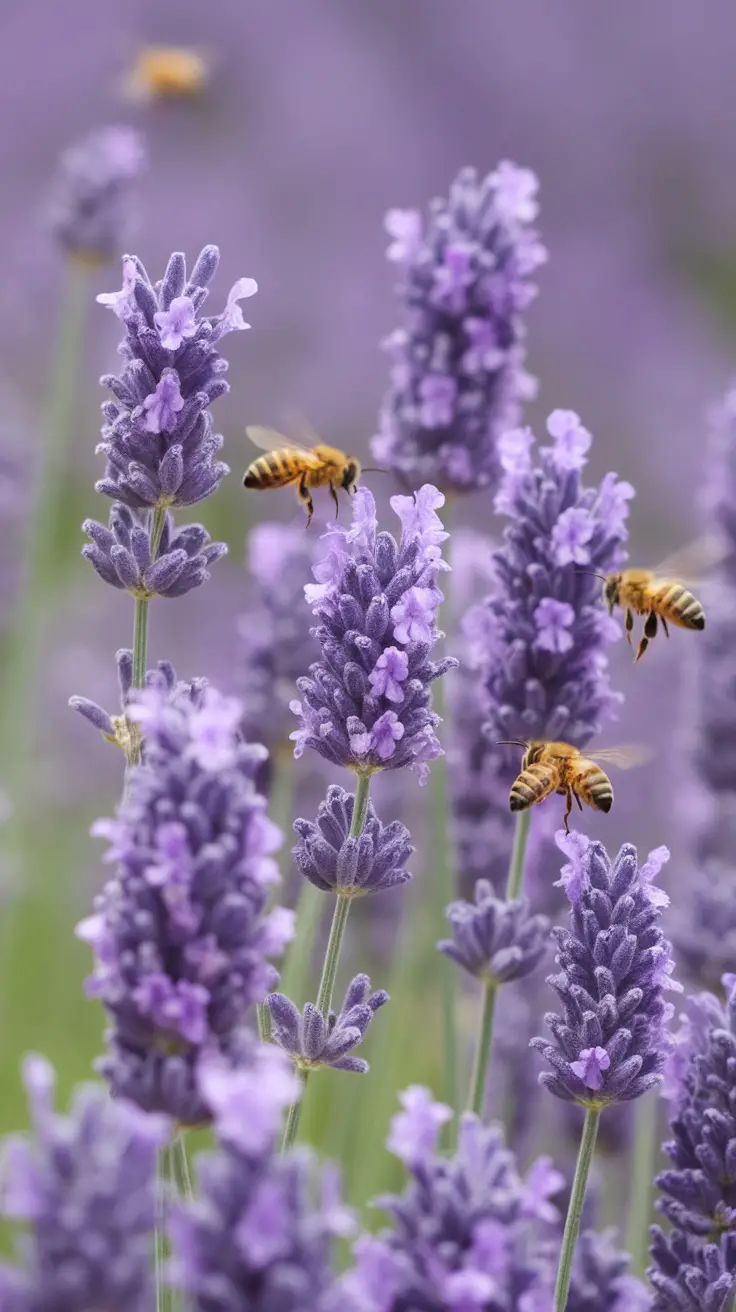
Lavender is not just a pretty flower; it brings a soothing scent that many people love. Its purple blooms, often buzzing with bees, create a calming atmosphere. These flowers are known for their fragrant oils, which are often used in aromatherapy to ease stress and promote relaxation.
Besides its pleasant aroma, lavender has a reputation for keeping pesky mosquitoes away. Placing lavender plants around your garden or patio can create a beautiful and peaceful space while also acting as a natural repellent. The strong scent that we find calming is one that mosquitoes tend to avoid.
If you’re looking to incorporate lavender into your garden, it thrives in sunny spots with well-drained soil. Its resilience makes it a great choice for both seasoned and new gardeners. Plus, it attracts beneficial insects like bees, promoting a healthy ecosystem in your backyard.
Rosemary’s Versatile Uses

Rosemary is not just a stunning herb to look at; it’s also packed with versatile uses that go beyond the kitchen. In the image, you can see a fresh sprig of rosemary next to some delicious grilled meat. This combination highlights one of its most popular uses: seasoning food.
When you add rosemary to dishes, it gives a rich, aromatic flavor that pairs perfectly with meats like lamb, chicken, and beef. Plus, it can elevate vegetable dishes, soups, and marinades, making them more exciting.
Aside from culinary delights, rosemary is known for its mosquito-repelling properties. By planting it around your garden or patio, you can create a natural barrier against these pesky insects. Its strong scent is unappealing to mosquitoes, making it a practical addition to any outdoor space.
Another fun use for rosemary is in homemade herbal remedies. You can create infused oils or teas that utilize its many health benefits. This herb is also believed to improve memory and concentration, making it a great addition to your study space.
So, whether you’re grilling up a storm or looking to keep your outdoor area mosquito-free, rosemary is a fantastic choice. It’s a small plant with big benefits, perfect for any home!
Citronella Grass Benefits
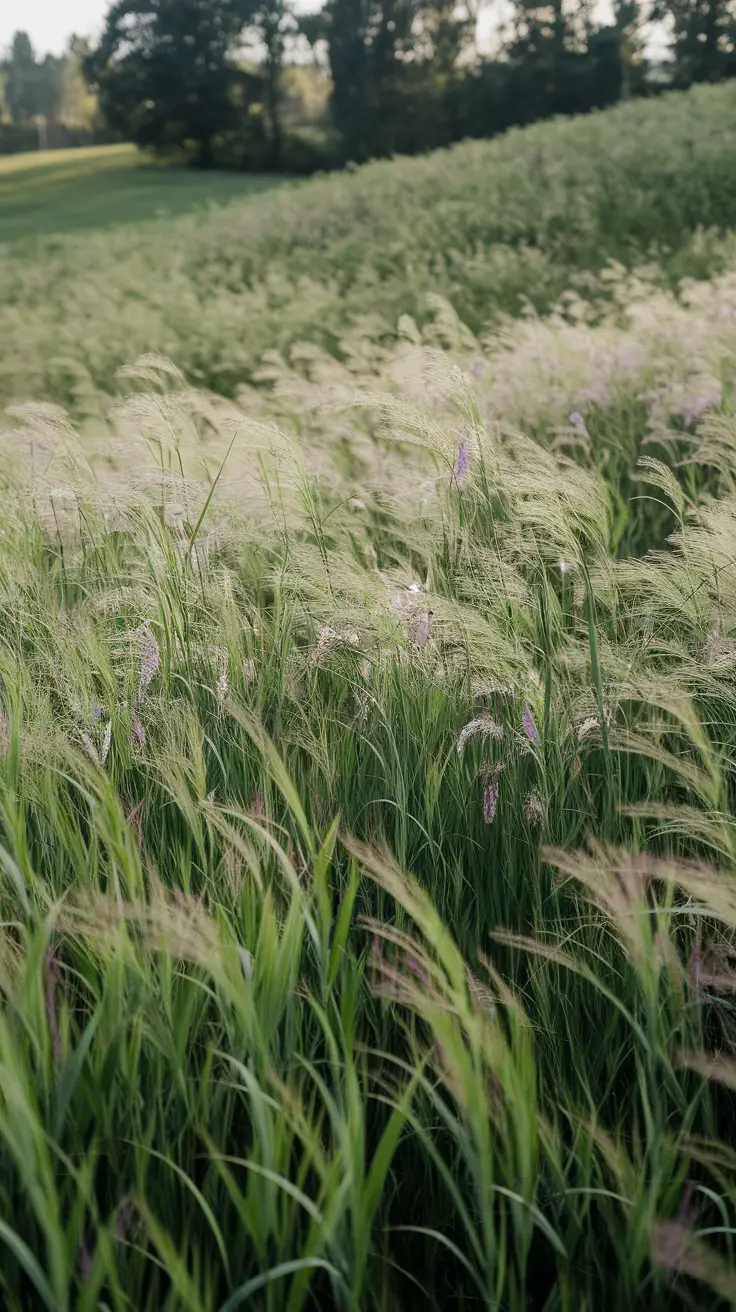
Citronella grass is a popular choice for keeping pesky mosquitoes at bay. This grassy plant is known for its distinct lemony scent, which is more than just pleasant—it acts as a natural repellent. When crushed, the leaves release essential oils that drive away mosquitoes and other unwanted insects.
Not only is citronella grass effective, but it’s also easy to grow. You can plant it in your garden or keep it in pots on your patio. It thrives in sunny spots and requires minimal maintenance. Just water it regularly, and your garden can become a mosquito-free zone.
In addition to its repellent properties, citronella grass has other benefits. Its essential oils are often used in homemade candles, sprays, and diffusers, providing a natural way to enhance your outdoor experience. Plus, the plant adds a lovely touch of greenery to any space.
By incorporating citronella grass into your garden, you not only enjoy the beauty of the plant but also create a more comfortable outdoor environment. So, if you’re tired of swatting away mosquitoes, consider adding this helpful grass to your collection!
Peppermint for Refreshing Scents
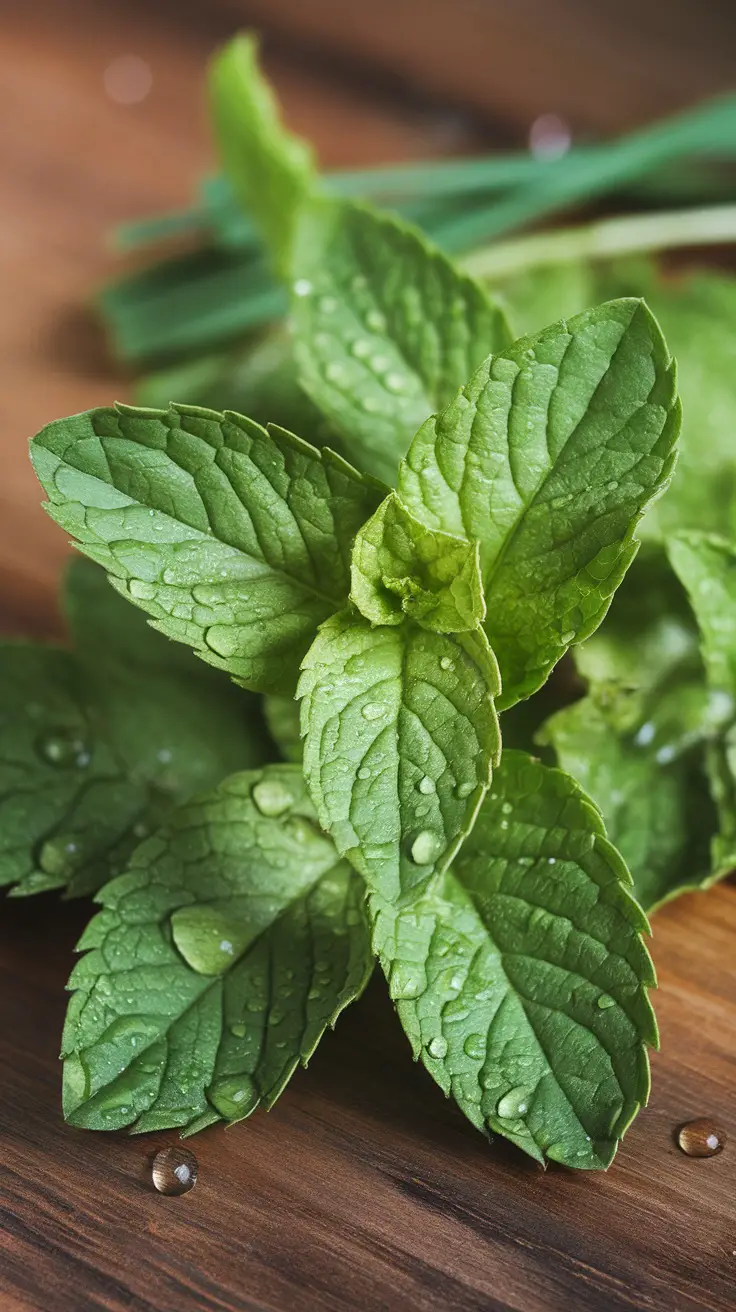
Peppermint is more than just a tasty herb; it’s also a natural mosquito repellent. The fresh, cool scent of peppermint can keep these pesky insects at bay. If you’ve ever brushed against peppermint leaves, you know how invigorating their aroma can be. This delightful scent can add a refreshing atmosphere to your garden or home.
Growing peppermint is easy, making it a go-to choice for many gardeners. Just a pot on your windowsill or a small patch in your backyard can provide a handy supply. The leaves can be used in teas or cooking, giving you both culinary joy and mosquito protection.
When planting peppermint, ensure it gets plenty of sunlight and water. The more vibrant the leaves, the more effective they are at repelling mosquitos. You can even crush a few leaves and rub them on your skin as a natural repellent. It’s a simple way to enjoy a pleasant aroma while keeping bugs away.
Basil’s Culinary and Protective Qualities
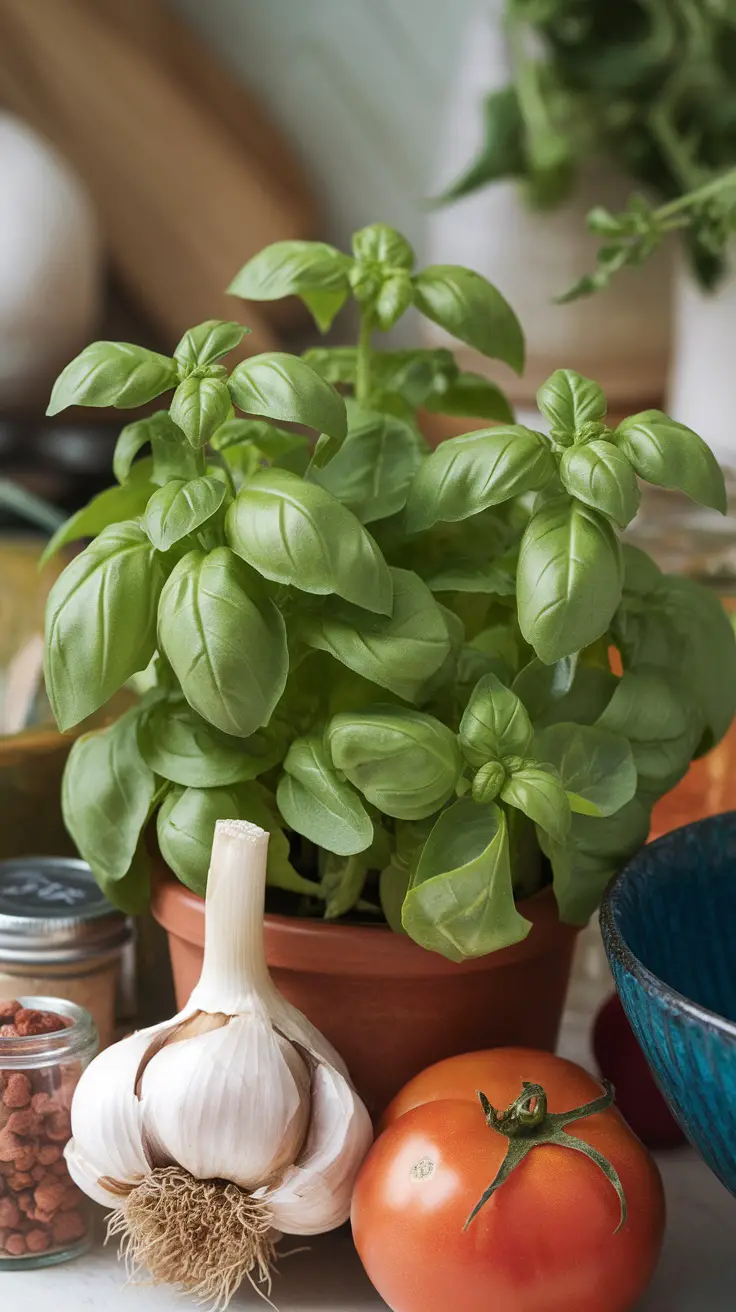
Basil is not just a tasty herb for your cooking; it also serves as a natural pest repellent. This vibrant green plant, often found in kitchens, pairs beautifully with tomatoes and garlic, both of which are staples in many recipes.
The image showcases a thriving basil plant, surrounded by garlic and ripe tomatoes. This combination highlights how basil can enhance your dishes while helping to keep pesky mosquitoes at bay. Its strong aroma is known to deter these insects, making it a perfect addition to your garden or balcony.
To enjoy basil’s benefits, you can easily grow it in a pot. Place it in a sunny spot and water it regularly. You can use fresh basil leaves in salads, pasta, or even homemade pesto. Just mix basil leaves with garlic, olive oil, and nuts for a simple yet flavorful dip!
So, while you’re prepping dinner, remember that basil does double duty: it adds flavor to your meal and helps keep those mosquitoes away. It’s a win-win situation for any home cook!
Sage’s Aromatic Influence
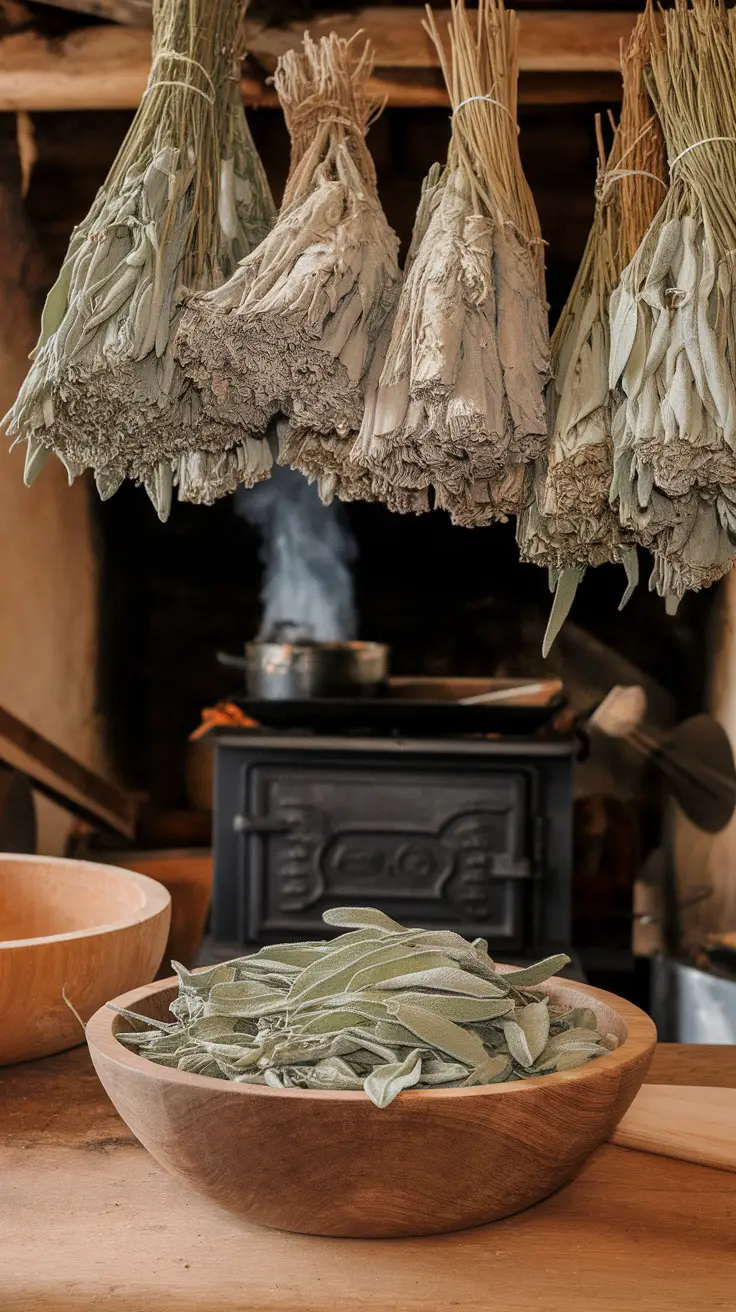
Sage is more than just a flavorful herb; it also has properties that help repel pesky mosquitoes. In the image, you can see dried bundles of sage hanging above a rustic setting. The earthy tones and textures create a warm vibe, emphasizing the natural beauty of this herb.
The leaves in the wooden bowl are vibrant and ready for use. Burning dried sage can release a fragrant smoke that mosquitoes find unappealing. This is a simple and effective way to create a comfortable outdoor space.
Incorporating sage into your garden not only enhances the look but also serves as a natural barrier against unwanted insects. Plus, it’s easy to grow and care for. Whether you opt for planting it or using it in its dried form, sage can bring a touch of nature into your home while helping keep those annoying bugs at bay.
Tansy and Its Historical Uses
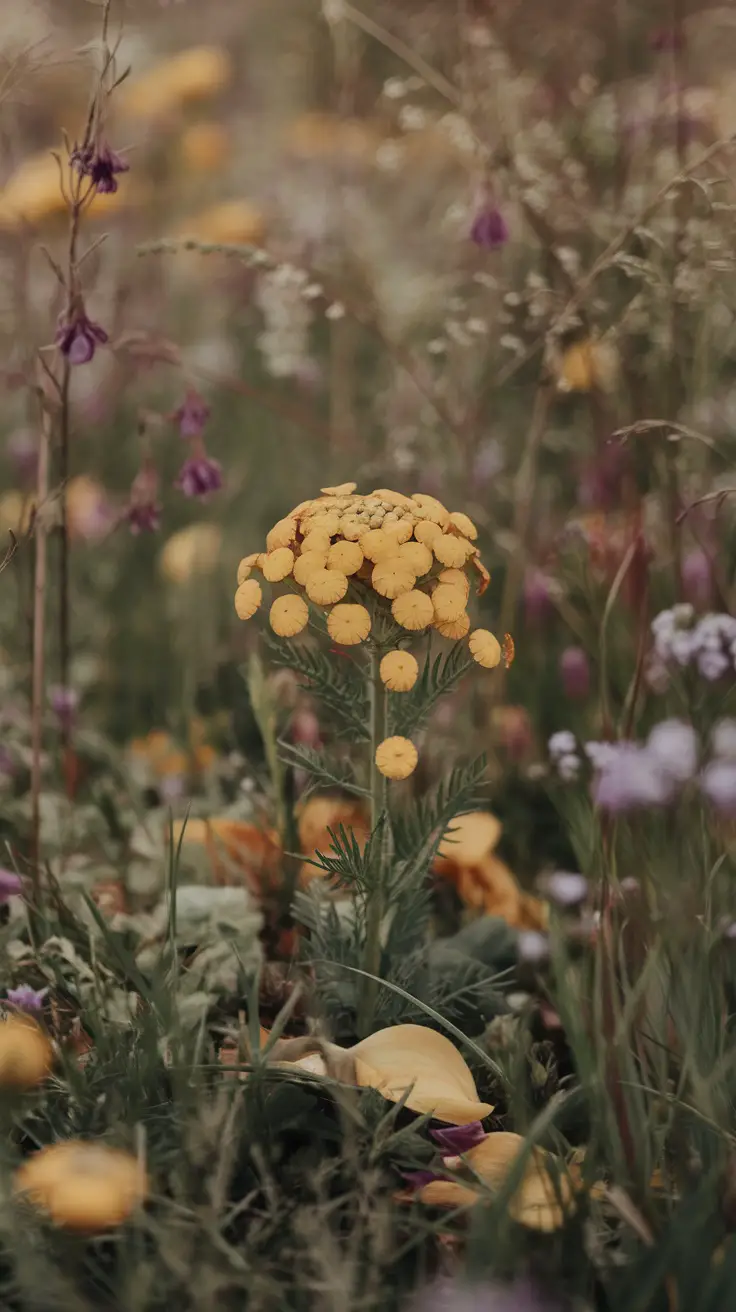
Tansy is a vibrant plant with striking yellow flowers, as shown in the image. These clusters of flowers stand tall among a sea of greenery, making them quite the sight. Historically, tansy has been known for its many uses.
In ancient times, people often used tansy to keep pests at bay, particularly mosquitoes. It has a strong aroma that many find off-putting, and this scent is what repels these annoying insects. Beyond keeping bugs away, tansy was also used in cooking and medicine.
The leaves of the tansy plant have a unique flavor that some might describe as bitter. This made them popular for flavoring dishes like pies. Additionally, it has been utilized in traditional remedies for various ailments. Overall, tansy is not just a pretty plant; it carries a rich history of practical uses.
Lemon Balm’s Inviting Fragrance

Lemon balm is not just a pretty plant; its inviting fragrance makes it a delight to have around. The fresh, citrusy smell can uplift your mood while also keeping those pesky mosquitos at bay.
The image showcases vibrant lemon balm leaves, a perfect addition to your home or garden. The greens look fresh and lively, hinting at the wonderful aroma they release. You can see a jar nearby, likely filled with an infusion that captures the essence of this lovely herb.
Using lemon balm is simple. You can crush some leaves to release their oils and rub them on your skin or brew them in tea for a refreshing drink. Not only does it taste good, but it’s also known to repel mosquitos effectively.
Thyme’s Versatile Charm

Thyme is not just a flavorful herb; it also works wonders in keeping mosquitoes at bay. Its strong aroma is a natural repellent that these pesky insects tend to avoid.
In the image, you can see a thriving thyme plant nestled among other herbs in a garden. The rich green leaves and upright growth show that it’s a healthy addition to any outdoor space. With its delicate leaves and vibrant color, thyme is visually appealing and practical.
Growing thyme in your garden is easy. It thrives in well-drained soil and loves sunny spots. You can even keep it in pots if space is limited. Just remember to water it regularly, and you’ll have a natural mosquito deterrent right at your fingertips!
What’s even better? You can use this herb in your cooking. From savory stews to roasted meats, thyme adds a lovely depth of flavor to various dishes, making it a versatile addition to your kitchen and your garden.
Fennel’s Unique Aroma
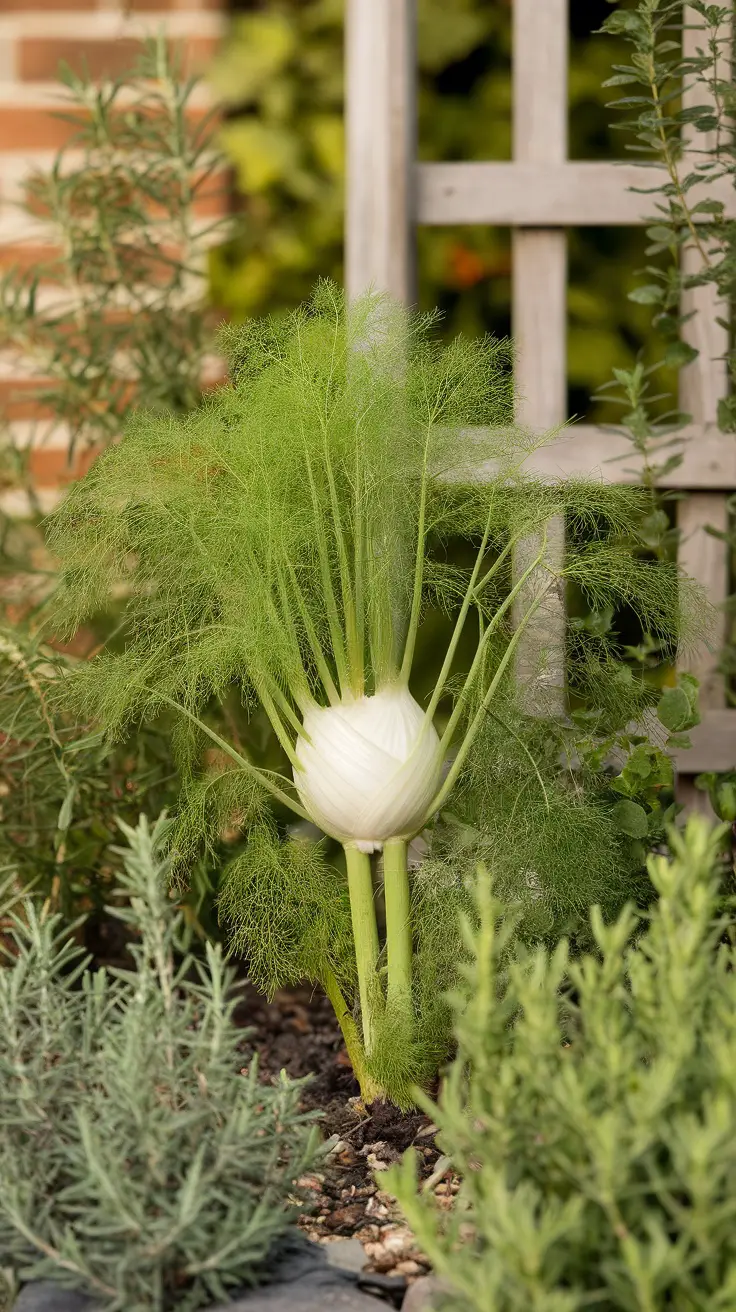
Fennel is not just a tasty addition to your kitchen; it also has a strong aroma that can help keep mosquitoes at bay. This plant features feathery green leaves and a bulbous base, making it an attractive choice for any garden.
The scent of fennel is sweet and slightly licorice-like, which many people find pleasant. However, mosquitoes tend to dislike it, making fennel a natural repellent. Planting fennel in your garden or keeping a pot of it on your patio can create a barrier against these pesky insects.
In the image, you can see a healthy fennel plant, standing tall among other herbs. Its vibrant green foliage is not only beautiful but also functional. By incorporating fennel into your outdoor space, you’ll enjoy its culinary uses while keeping mosquitoes at a distance.
Nasturtiums and Their Edible Flowers
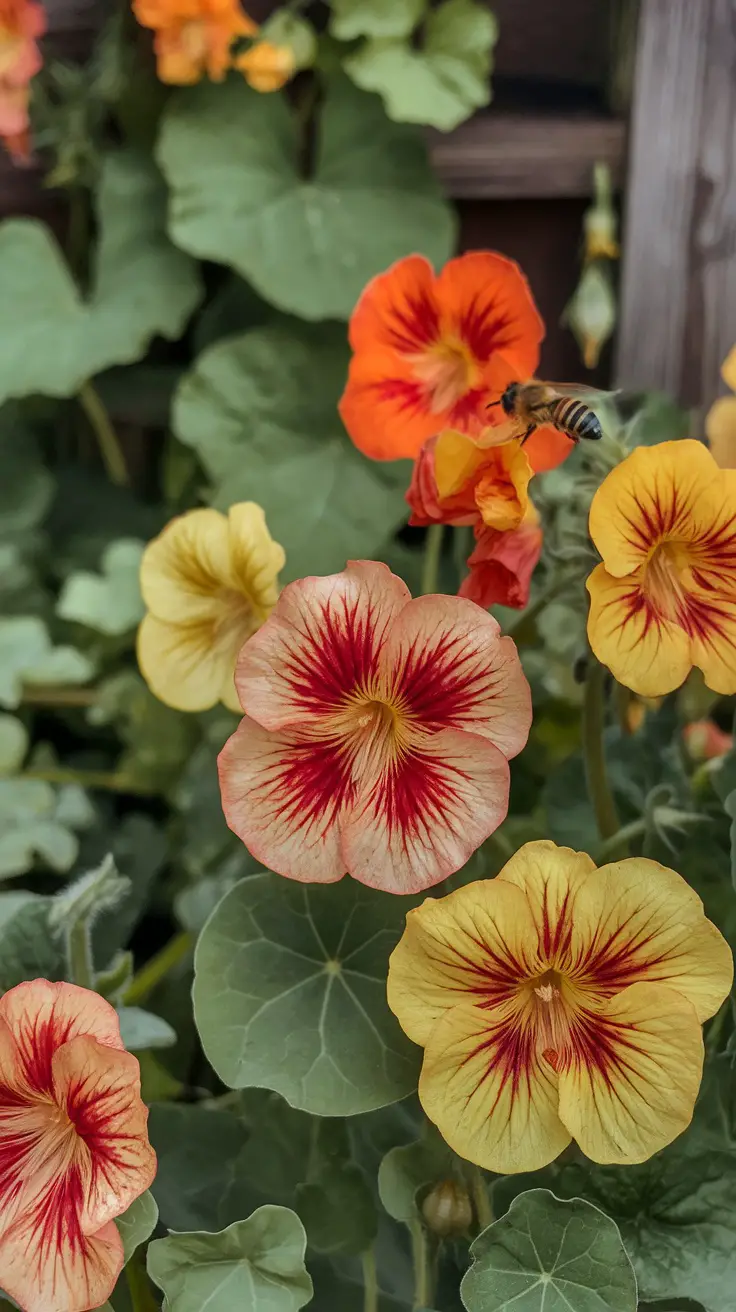
Nasturtiums are vibrant flowers that can brighten up any garden. Known for their beautiful red, orange, and yellow hues, they can make your outdoor space pop with color. These flowers not only look lovely but also serve a practical purpose—they help repel mosquitoes. Their scent is known to deter these pesky insects, making your garden a more enjoyable place.
In addition to being great for pest control, nasturtiums are completely edible. You can use the leaves and flowers in salads, adding a peppery flavor that can elevate any dish. The bright flowers are particularly attractive as a garnish for meals, adding a touch of color and a unique taste.
To incorporate nasturtiums into your cooking, just pluck the flowers and leaves and rinse them thoroughly. You can toss them into a fresh salad, blend them into a pesto, or use them to top off a cheese platter. They’re easy to grow in your backyard or even in pots on your balcony, making them an accessible choice for anyone looking to enhance their garden while keeping mosquitoes at bay.
Garlic’s Powerful Effect
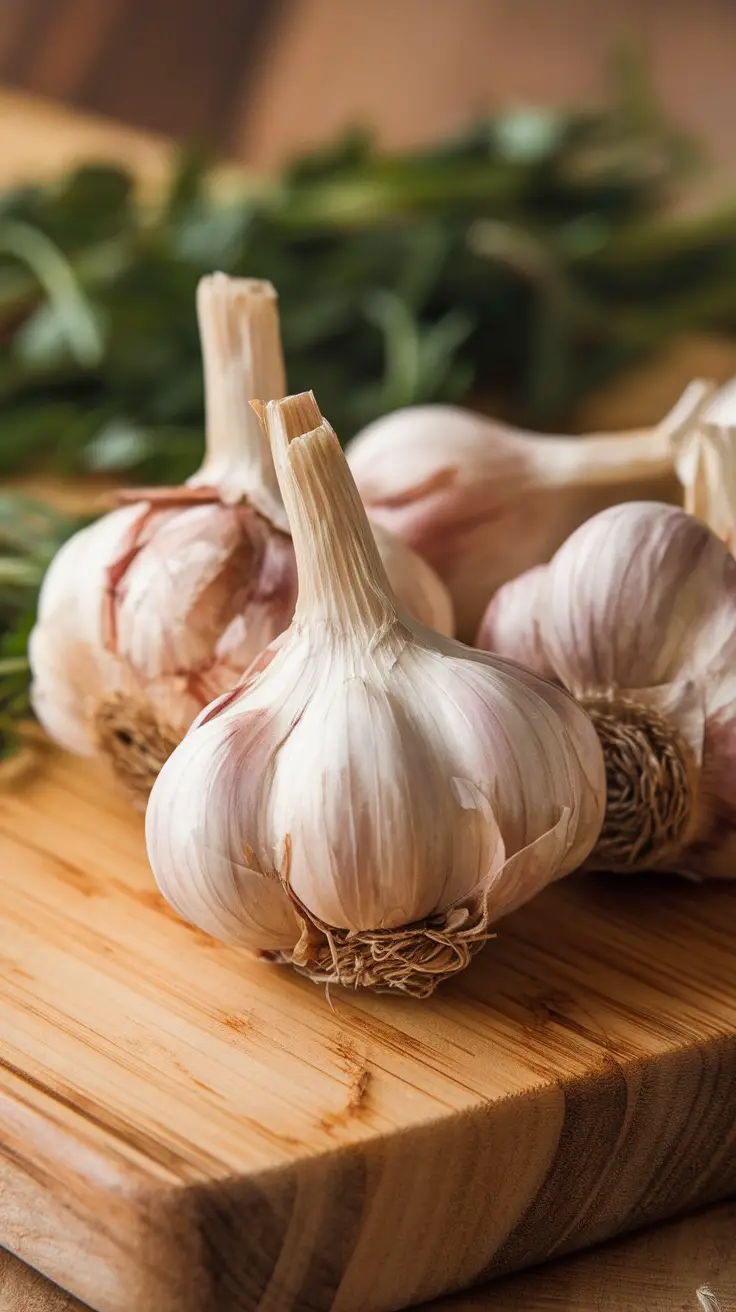
Garlic is more than just a flavorful addition to your meals. This humble bulb has a hidden talent—repelling mosquitoes! The image shows fresh garlic bulbs, their papery skins glistening, ready to help you enjoy your outdoor spaces without pesky interruptions.
When you crush or chop garlic, it releases a compound called allicin. This is what gives garlic its strong scent and also its mosquito-repelling properties. If you want to keep these bugs at bay, consider planting garlic in your garden or placing whole bulbs around your patio.
Additionally, you can make a simple garlic spray. Just blend a few cloves with water, strain it, and spray it in areas where mosquitoes gather. Not only does it smell good to some, but it acts as a natural barrier against those annoying insects. So, if you’re looking for a natural way to enjoy your summer nights, garlic is your go-to friend!




